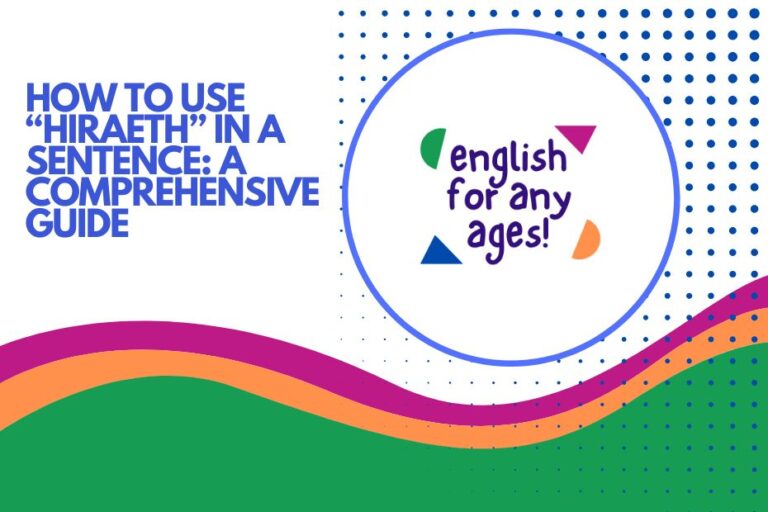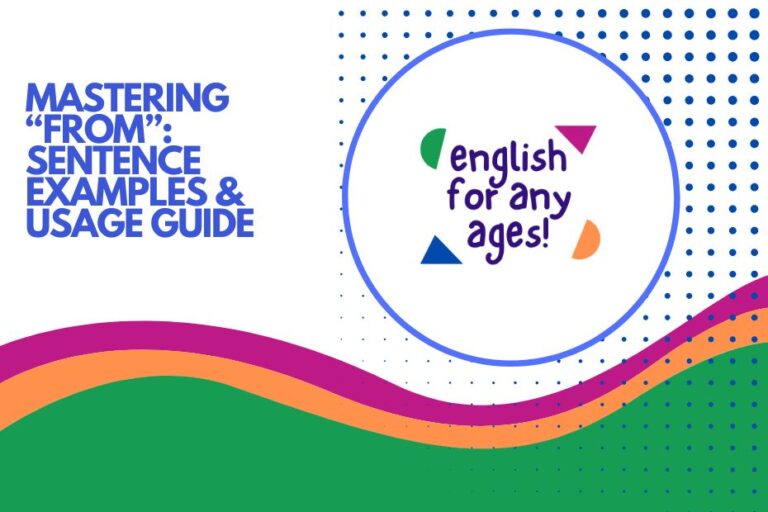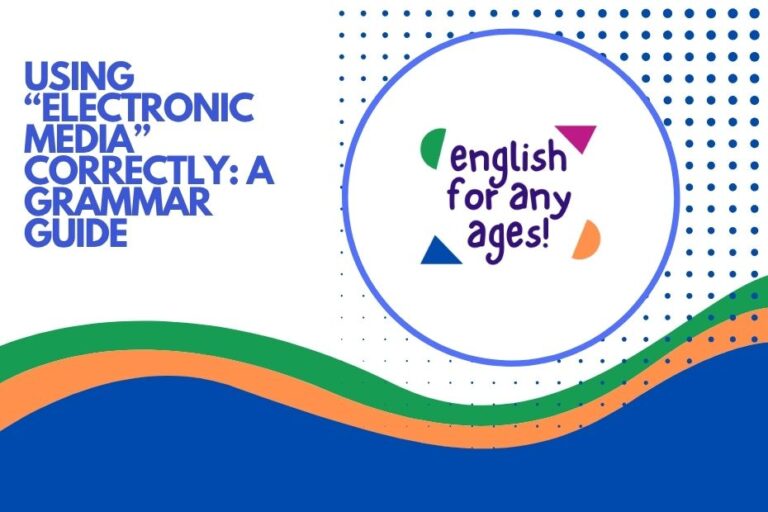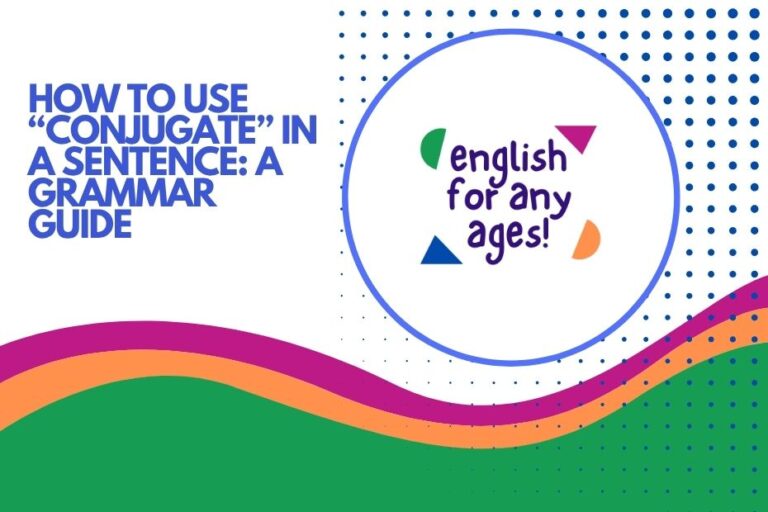Mastering “Upon”: Sentence Examples and Usage Guide
Understanding the proper use of prepositions is crucial for clear and effective communication in English. Among the various prepositions, “upon” holds a unique position, often considered a more formal alternative to “on.” This article provides a comprehensive guide to using “upon” correctly, exploring its various meanings, grammatical functions, and common usage scenarios.
Whether you’re an English language learner or a seasoned writer looking to refine your skills, this guide will equip you with the knowledge and practice to confidently incorporate “upon” into your vocabulary.
Table of Contents
- Definition of “Upon”
- Structural Breakdown
- Types of Usage
- Examples of “Upon” in Sentences
- Usage Rules
- Common Mistakes
- Practice Exercises
- Advanced Topics
- FAQ
- Conclusion
Definition of “Upon”
“Upon” is a preposition that generally indicates a position or location on top of something. It is often used interchangeably with “on,” but “upon” often carries a more formal or literary tone.
Its function extends beyond simple location to encompass time, condition, and dependence. Understanding these nuances is key to using “upon” effectively.
Classically, “upon” shows a relationship between a noun or pronoun and another word in the sentence. It typically answers the questions “where?” or “when?” but can also indicate “under what circumstances?” or “based on what?” Its versatility makes it a valuable tool in written and spoken English, though its slightly archaic feel means it is more common in formal contexts.
Structural Breakdown
The structural role of “upon” in a sentence is relatively straightforward. It typically precedes a noun or pronoun, forming a prepositional phrase. This phrase then modifies another element in the sentence, such as a noun, verb, or adjective. The basic structure is: Upon + Noun/Pronoun (creating a Prepositional Phrase).
Consider the sentence: “The book lay upon the table.” Here, “upon the table” is the prepositional phrase, with “upon” as the preposition and “the table” as the noun phrase that it governs. This phrase modifies the verb “lay,” indicating where the book was located.
The prepositional phrase functions as an adverbial phrase, modifying the verb; it provides additional information about the action.
Another example is: “Upon closer inspection, we noticed the error.” Here, “upon closer inspection” is the prepositional phrase, modifying the verb “noticed.” In this case, it acts as an adverbial phrase indicating the condition under which they noticed the error. Understanding this structure is critical for constructing grammatically correct sentences using “upon.”
Types of Usage
Location & Position
This is the most common usage, indicating something is physically on top of something else. It often substitutes for “on” but adds a layer of formality.
Time & Occasion
“Upon” can denote a specific point in time or the occurrence of an event. It introduces when something happens or will happen.
Dependence & Reliance
In this usage, “upon” expresses reliance or dependence on something or someone. It signifies that one thing is contingent on another.
Reaction & Discovery
“Upon” can introduce a reaction or discovery that occurs as a result of something else. It highlights the cause-and-effect relationship.
Idiomatic Expressions
Several idiomatic expressions incorporate “upon,” each with its unique meaning. Understanding these expressions is important for comprehending nuanced language.
Examples of “Upon” in Sentences
The following sections provide detailed examples of “upon” used in various contexts. Each example is designed to illustrate the specific usage and meaning of “upon” in that context.
Location Examples
These examples demonstrate the use of “upon” to indicate physical location or position, often interchangeable with “on,” but in a more formal style.
The following table illustrates the preposition “upon” within the context of location.
| Sentence | Explanation |
|---|---|
| The cat sat upon the windowsill. | Indicates the cat’s location is on the windowsill. |
| The dust settled upon the antique furniture. | Shows the dust is located on the furniture. |
| The statue was placed upon a pedestal. | Specifies the statue’s position on the pedestal. |
| The ship sailed upon the open sea. | Describes the ship’s location on the sea. |
| The dew glistened upon the grass. | Indicates the dew’s location on the grass. |
| The spider spun its web upon the old fence. | Shows the web’s location on the fence. |
| The leaves fell upon the forest floor. | Specifies the leaves’ position on the ground. |
| The bird perched upon the branch. | Indicates the bird’s location on the branch. |
| The snow lay upon the mountains. | Shows the snow’s location on the mountains. |
| The spotlight shone upon the stage. | Specifies the spotlight’s focus on the stage. |
| He placed his hand upon her shoulder. | Indicates the location of his hand. |
| The painting hung upon the wall. | Shows the painting’s position on the wall. |
| The town was built upon a hill. | Describes the town’s location on the hill. |
| The papers were scattered upon the desk. | Indicates the papers’ location on the desk. |
| The castle stood upon a cliff. | Specifies the castle’s position on the cliff. |
| The label was affixed upon the package. | Shows the label’s location on the package. |
| The flag waved upon the flagpole. | Indicates the flag’s position on the pole. |
| The ornaments were arranged upon the shelves. | Describes the ornaments’ location on the shelves. |
| The fruit rested upon the counter. | Specifies the fruit’s position on the counter. |
| The book lay open upon the table. | Indicates the book’s location on the table. |
| The city was built upon layers of history. | Describes the city’s foundation as being built on history. |
| The company’s future rests upon this new product launch. | Indicates the company’s future depends on the product. |
| The responsibility falls upon your shoulders. | Indicates that you are responsible. |
Time Examples
These examples illustrate the use of “upon” to indicate a specific time or occasion, often introducing an event that follows closely.
The table below presents sentences using “upon” to indicate time.
| Sentence | Explanation |
|---|---|
| Upon arriving home, I immediately made dinner. | Indicates the action of making dinner occurred shortly after arriving home. |
| Upon graduation, she plans to travel the world. | Shows the travel plans are contingent upon graduation. |
| Upon receiving the news, he burst into tears. | Indicates the emotional reaction immediately followed the news. |
| Upon closer examination, the details became clear. | Shows that clarity was a result of closer examination. |
| Upon reflection, I realized my mistake. | Indicates the realization came after thinking about it. |
| Upon further consideration, we decided to accept the offer. | Shows the decision was made after more thought. |
| Upon completion of the project, we will celebrate. | Indicates the celebration will occur after the project is finished. |
| Upon his death, his fortune was divided among his heirs. | Shows the division of the fortune occurred after his death. |
| Upon the dawn of a new era, hope filled the land. | Indicates the hope arose with the beginning of the new era. |
| Upon reaching the summit, they planted the flag. | Shows the planting of the flag occurred after reaching the summit. |
| Upon seeing her, he knew he was in love. | Describes the moment love struck him. |
| Upon hearing the music, she began to dance. | Shows her dancing started when she heard the music. |
| Upon starting the engine, the car sputtered. | Describes the car’s reaction when the engine was started. |
| Upon entering the room, everyone fell silent. | Describes the effect of someone entering. |
| Upon tasting the soup, she frowned. | Describes her reaction to the taste. |
| Upon feeling the rain, they ran for cover. | Describes what they did when they felt the rain. |
| Upon realizing the mistake, he apologized. | Describes his reaction to his realization. |
| Upon discovering the truth, she felt betrayed. | Describes her feelings when the truth was discovered. |
| Upon finishing the race, he collapsed from exhaustion. | Describes his condition after the race. |
| Upon launching the rocket, mission control held its breath. | Describes the tension at mission control. |
| Upon the stroke of midnight, the celebration began. | The celebration commenced exactly when midnight struck. |
| Upon closer inspection of the data, a pattern emerged. | Indicates that a pattern was only visible with detailed examination. |
Dependence Examples
These examples demonstrate the use of “upon” to indicate reliance or dependence, showing one thing is contingent on another.
The following table presents examples of sentences that use “upon” to express dependence.
| Sentence | Explanation |
|---|---|
| The success of the project depends upon teamwork. | Indicates the project’s success is reliant on teamwork. |
| His future rests upon his performance in the upcoming exams. | Shows his future is contingent on his exam results. |
| The company’s growth is dependent upon market trends. | Indicates the company’s growth relies on market trends. |
| Our decision hinges upon the availability of resources. | Shows the decision is contingent on resource availability. |
| The trial’s outcome relies upon the evidence presented. | Indicates the trial’s outcome depends on the evidence. |
| The funding is contingent upon meeting certain criteria. | Shows the funding depends on fulfilling the criteria. |
| Their survival is dependent upon finding a water source. | Indicates their survival relies on the water source. |
| The agreement is conditional upon final approval. | Shows the agreement depends on the approval. |
| The effectiveness of the medicine relies upon strict adherence to the dosage. | Indicates the medicine’s effectiveness depends on following the dosage. |
| The building’s stability depends upon its foundation. | Shows the building’s stability relies on its foundation. |
| My happiness depends upon my family. | Shows the dependence of happiness on family. |
| The crop yield is dependant upon the weather. | Shows the dependence of crop yield on weather. |
| The experiment success depends upon precise measurements. | Highlights the importance of measurements. |
| Our travel plans are dependent upon getting a visa. | Highlights the importance of the visa. |
| The team’s success depends upon the captain’s leadership. | Shows the importance of the captain’s role. |
| The plants’ growth is dependent upon enough sunlight. | Highlights the importance of sunlight. |
| The project’s completion depends upon securing additional funding. | Highlights the importance of funding. |
| Her promotion is dependent upon her performance review. | Highlights the importance of the review. |
| The bridge’s safety depends upon regular maintenance. | Highlights the importance of maintenance. |
| The ecosystem’s health is dependent upon biodiversity. | Highlights the importance of biodiversity. |
| The solution to the problem depends upon a clear understanding of the facts. | Indicates that understanding the facts is necessary for finding a solution. |
| The play’s success hinges upon the actor’s interpretation of the role. | The actor’s performance is critical for the play’s success. |
Reaction Examples
These examples illustrate the use of “upon” to introduce a reaction or discovery that occurs as a result of something else, highlighting the cause-and-effect relationship.
The table below shows the usage of “upon” to indicate a reaction.
| Sentence | Explanation |
|---|---|
| Upon hearing the news, she fainted. | Indicates fainting was a reaction to the news. |
| Upon seeing the damage, he was filled with rage. | Shows the rage was a reaction to the damage. |
| Upon tasting the soup, she made a face. | Indicates the facial expression was a reaction to the soup. |
| Upon feeling the cold, he shivered. | Shows shivering was a reaction to the cold. |
| Upon realizing his mistake, he apologized immediately. | Indicates the apology was a reaction to the realization. |
| Upon discovering the truth, she felt betrayed. | Shows the feeling of betrayal was a reaction to the truth. |
| Upon finishing the marathon, he collapsed from exhaustion. | Indicates the collapse was a reaction to finishing the marathon. |
| Upon receiving the award, she gave an emotional speech. | Shows the speech was a reaction to receiving the award. |
| Upon smelling the smoke, they ran out of the building. | Indicates running out of the building was a reaction to the smoke. |
| Upon touching the hot stove, he screamed in pain. | Shows the scream was a reaction to the hot stove. |
| Upon seeing the ghost, she screamed. | Indicates that seeing the ghost caused the scream. |
| Upon finding the treasure, he rejoiced. | Indicates that he rejoiced when he found the treasure. |
| Upon hearing the joke, they laughed uproariously. | Indicates that the joke was funny. |
| Upon reading the letter, she cried. | Highlights the sadness of the letter. |
| Upon solving the puzzle, he smiled. | Indicates his satisfaction. |
| Upon winning the lottery, they celebrated. | Indicates their joy at winning. |
| Upon losing the game, he sulked. | Indicates his disappointment. |
| Upon being criticized, she defended herself. | Indicates her reaction to criticism. |
| Upon being praised, he blushed. | Indicates his embarassment at the praise. |
| Upon being fired, he felt devastated. | Indicates his feelings at being fired. |
| Upon closer inspection, the painting was revealed to be a forgery. | The painting was revealed to be a forgery after a closer look. |
Idiomatic Expression Examples
These examples showcase common idiomatic expressions that incorporate “upon,” each with a unique and often non-literal meaning.
The table below lists sentences for the idiomatic usage of “upon”.
| Sentence | Explanation |
|---|---|
| Once upon a time, there was a princess. | A common phrase used to begin fairy tales. |
| They stumbled upon a hidden treasure. | Means they found the treasure unexpectedly. |
| The responsibility falls upon his shoulders. | Means he is the one who is responsible. |
| He insisted upon his rights. | Means he was firm about his rights. |
| She prided herself upon her cooking skills. | Means she was proud of her cooking skills. |
| They agreed upon a plan of action. | Means they came to an agreement on the plan. |
| He embarked upon a new career path. | Means he started a new career. |
| She capitalized upon her strengths. | Means she used her strengths to her advantage. |
| He was caught upon a dilemma. | He was in a difficult situation |
| They frowned upon such behavior. | They disapproved of the behavior. |
| I called upon my friend for help. | Asked my friend for help. |
| The teacher elaborated upon the subject. | The teacher explained the subject in more detail. |
| She expanded upon her ideas. | She provided more details about her ideas. |
| He improved upon the design. | He made the design better. |
| They reflected upon their experiences. | They thought deeply about their experiences. |
| She elaborated upon her point. | She went into more detail about her point. |
| He built upon his previous success. | He used his success as a foundation for further achievements. |
| They expanded upon their research. | They conducted further research. |
| I stumbled upon an interesting article. | I found an interesting article by chance. |
Usage Rules
The use of “upon” is governed by several rules, mainly revolving around formality and context. While often interchangeable with “on,” “upon” should be used when a more formal or literary tone is desired.
In modern English, “on” is generally preferred in everyday speech and writing, while “upon” is reserved for more elevated contexts.
One key rule is to avoid using “upon” in situations where it sounds overly pretentious or unnatural. For example, saying “I sat upon the chair” instead of “I sat on the chair” might sound stilted in casual conversation.
However, in formal writing, such as legal documents or academic papers, “upon” can be appropriate. Always consider your audience and the overall tone of your writing when deciding whether to use “upon” or “on.”
Another rule is related to idiomatic expressions. Certain phrases, such as “once upon a time” or “depend upon,” always use “upon” and should not be replaced with “on.” These expressions have become fixed in the English language and changing them would sound incorrect.
Understanding these idiomatic usages is essential for accurate and natural language use.
Common Mistakes
One of the most common mistakes is using “upon” when “on” is more appropriate, leading to an unnecessarily formal or awkward tone. For example:
Incorrect: I put the keys upon the table.
Correct: I put the keys on the table.
Another common mistake is using “on” in idiomatic expressions that require “upon.” For example:
Incorrect: The decision depends on the evidence.
Correct: The decision depends upon the evidence.
A further mistake is using “upon” redundantly, especially when the context already implies a sense of formality or elevation. For instance, in some cases, both “on” and “upon” can be omitted for a more concise phrasing.
Redundant: The responsibility rests upon him to ensure the project succeeds.
Better: He is responsible for ensuring the project succeeds.
Here are some additional examples of common mistakes and their corrections:
| Incorrect | Correct | Explanation |
|---|---|---|
| He climbed upon the tree. | He climbed on the tree. | “On” is more natural in this context. |
| She relied on his support. | She relied upon his support. | “Upon” is acceptable, adding a slightly more formal tone. |
| The house stood upon the street. | The house stood on the street. | “On” is generally preferred for streets. |
| They agreed on a solution. | They agreed upon a solution. | “Upon” is acceptable and slightly more formal. |
Practice Exercises
The following exercises will help you practice using “upon” correctly in different contexts. Each exercise focuses on a specific aspect of “upon” usage, from filling in the blanks to correcting sentences and constructing your own sentences.
Exercise 1: Fill in the Blanks
Fill in the blanks with the appropriate preposition: “on” or “upon.”
| Question | Answer |
|---|---|
| 1. The book is lying ______ the desk. | on |
| 2. The success of this venture depends ______ your efforts. | upon |
| 3. Once ______ a time, there was a kingdom far away. | upon |
| 4. He sat ______ the chair and sighed. | on |
| 5. The responsibility falls ______ your shoulders. | upon |
| 6. She insisted ______ her innocence. | upon |
| 7. We stumbled ______ a delightful cafe during our walk. | upon |
| 8. The cat jumped ______ the fence. | on |
| 9. The painting hung ______ the wall. | on |
| 10. ______ closer inspection, the details became clear. | Upon |
Exercise 2: Sentence Correction
Correct the following sentences, if necessary. If the sentence is already correct, write “Correct.”
| Question | Answer |
|---|---|
| 1. I saw him on arriving at the party. | I saw him upon arriving at the party. |
| 2. The cat sat upon the mat. | Correct |
| 3. He placed the vase upon the table. | He placed the vase on the table. |
| 4. Their fate depends on the weather. | Their fate depends upon the weather. |
| 5. She relied upon him for support. | Correct |
| 6. The bird flew on the tree. | The bird flew to the tree. (or perched on the tree) |
| 7. They agreed on the terms of the contract. | They agreed upon the terms of the contract. |
| 8. Once in a while, I visit my grandmother. | Correct |
| 9. He insisted on his version of the story. | He insisted upon his version of the story. |
| 10. The dust settled on the furniture. | Correct |
Exercise 3: Sentence Construction
Create sentences using “upon” based on the following prompts.
| Prompt | Example Answer |
|---|---|
| 1. Describe a reaction to a loud noise. | Upon hearing the explosion, everyone screamed. |
| 2. Describe something that depends on hard work. | Success depends upon diligent hard work. |
| 3. Describe the beginning of a fairy tale. | Once upon a time, there lived a brave knight. |
| 4. Describe placing something carefully. | She gently placed the fragile teacup upon the saucer. |
| 5. Describe discovering something unexpected. | They stumbled upon an ancient ruin in the jungle. |
| 6. Describe what happens after completing a task. | Upon finishing the exam, I felt a sense of relief. |
| 7. Describe something that is built on something else. | The skyscraper was built upon a solid foundation. |
| 8. Describe someone relying on friend’s help. | I relied upon my best friend to help me move. |
| 9. Describe what happens when you taste something bad. | Upon tasting the spoiled milk, I grimaced. |
| 10. Describe what happens immediately after you wake up. | Upon waking up, I stretched and yawned. |
Advanced Topics
For advanced learners, exploring the etymology and historical usage of “upon” can provide a deeper understanding of its nuances. The word “upon” is derived from the Old English “uppan,” a combination of “up” and “on.” This origin reflects its primary meaning of being “on top of” or “above.” Studying Old English texts can reveal how the usage of “upon” has evolved over time.
Another advanced topic is the subtle differences in meaning between “upon” and other similar prepositions, such as “onto” and “above.” While “upon” generally implies a static position, “onto” suggests movement to a position on something. “Above” indicates a position higher than something but not necessarily in direct contact.
Furthermore, analyzing the use of “upon” in literature and poetry can provide insights into its stylistic effects. Authors often use “upon” to create a sense of formality, antiquity, or solemnity.
Recognizing these stylistic choices can enhance your appreciation of literary works and improve your own writing skills.
FAQ
- Is “upon” simply a more formal version of “on?”
Yes, “upon” is often considered a more formal or literary alternative to “on.” While they can frequently be used interchangeably, “upon” adds a layer of elevation or solemnity to the sentence. In modern everyday speech, “on” is generally preferred, but “upon” remains appropriate in formal writing, idiomatic expressions, or when aiming for a more archaic or literary tone.
- When should I use “upon” instead of “on?”
Use “upon” when you want to create a more formal or literary effect. It is also necessary to use “upon” in certain idiomatic expressions, such as “once upon a time” or “depend upon.” Consider your audience and the overall tone of your writing when deciding whether to use “upon” or “on.” If in doubt, “on” is generally a safe choice in contemporary English.
- Are there any situations where “upon” is always preferred?
Yes, “upon” is always preferred in certain idiomatic expressions. These include phrases like “once upon a time,” “depend upon,” “insist upon,” and “stumble upon.” These expressions have become fixed in the English language, and using “on” in their place would sound incorrect.
- Can I use “upon” in spoken English?
While “upon” is grammatically correct in spoken English, it is generally less common than “on.” Using “upon” in casual conversation might sound overly formal or pretentious to some listeners. However, in more formal speaking situations, such as presentations or speeches, “upon” can be used to add a touch of elegance or authority.
- What is the difference between “upon” and “onto?”
“Upon” indicates a static position on something, while “onto” suggests movement to a position on something. For example, “The book lay upon the table” indicates the book was already on the table. “He jumped onto the table” indicates he moved to a position on the table. The key difference is the presence or absence of movement.
- Is it correct to say “upon arriving” or should it be “on arriving”?
“Upon arriving” is the correct and more formal phrasing. While “on arriving” might be encountered in informal contexts, “upon arriving” is grammatically sound and conveys a sense of immediacy or consequence following the arrival.
- How can I improve my understanding of when to use “upon”?
The best way to improve your understanding is through practice and exposure. Read a wide range of texts, paying attention to how “upon” is used in different contexts. Try writing your own sentences using “upon,” and ask for feedback from native English speakers or teachers. Over time, you will develop a better sense of when “upon” is appropriate and when “on” is a better choice.
- Does the usage of “upon” vary between different dialects of English?
While the general rules for using “upon” are consistent across most dialects of English, there may be slight variations in frequency and preference. In some dialects, “upon” might be used more commonly than in others. However, the underlying grammatical principles remain the same.
Conclusion
Mastering the use of “upon” involves understanding its definition, structural role, various types of usage, and the subtle rules that govern its application. While often interchangeable with “on,” “upon” carries a distinct formal tone that can enhance the elegance and authority of your writing.
By studying the examples provided, practicing the exercises, and being mindful of common mistakes, you can confidently incorporate “upon” into your vocabulary.
Remember that context is key. Consider your audience, the overall tone of your writing, and the specific nuances of idiomatic expressions when deciding whether to use “upon” or “on.” With practice and attention to detail, you can master the art of using “upon” effectively and enhance your overall command of the English language.
Continue to explore and experiment with language to refine your skills and






